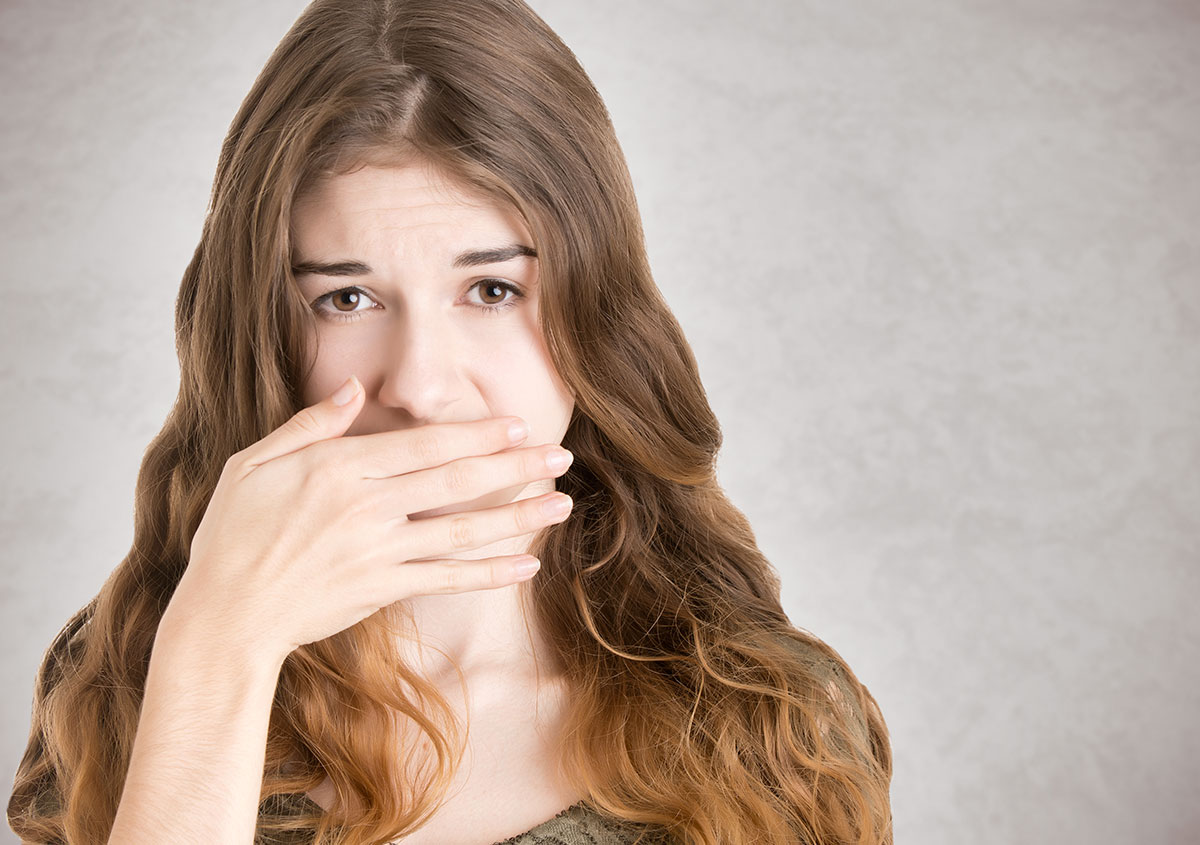
New Patients
(571) 248-7389Existing Patients
(571) 248-070015
Jul
10 Causes of Bad Breath

If your bad breath lasts beyond the onion bagel you had for lunch, there’s something else going on with your oral health. Halitosis, the medical term for bad breath, can affect anyone and often be solved by a good brushing and flossing. Chronic halitosis, however, is a serious problem with a root cause.
Here are just 10 possible reasons for bad breath:
1. Acid reflux
GERD, acid reflux, and heartburn are common digestive disorders. Stomach acid, undigested food, and anything that comes back up from the digestive tract when it should be going down is a sure road to bad breath.
2. Alcohol
Liquid though it is, alcohol can dry out your mouth, whether liquor, beer, or wine. Lack of saliva or moisture in the mouth encourages the growth of bacteria and causes halitosis.
3. Caffeine
Coffee breath? It’s a real thing, especially for regular drinkers of coffee and those who sip on java all day. Coffee has a high sulfur compound, and it can dry out your mouth by slowing saliva production.
4. Colds
You may not be able to smell anything when you have a cold or any type of upper respiratory infection, but rest assured that other people can smell your bad breath thanks to bacteria’s love of mucus. Lots of mouth breathing from a stuffy nose can also dry out your mouth, creating odors.
5. Foods
Some foods cause temporary bad breath, but the foods that linger that are your biggest enemy. Sticky edibles like dried fruit get stuck in between teeth and, if they aren’t removed properly, the stink of leftover food remains and grows. Plus, the growth of plaque and bacteria on the teeth can cause tooth decay and cavities.
6. Low-carb diet
Upping the protein in your diet and minimizing carbs is touted as healthy and a great route to weight loss. When your body starts burning fat for energy, however, the byproduct is ketones, which cause bad breath.
7. Medication
There are hundreds of prescription and over-the-counter drugs that impede the flow of saliva. Without a moist mouth and a healthy mix of types of saliva, bad breath is almost inevitable. Lack of saliva in the mouth can lead to gingivitis. Because changing medication is not always an option, chewing sugarless gum to promote the production of saliva can help.
8. Nicotine
Whether your poison – and, literally, it is poison – is cigarettes, cigars, or chewing tobacco, smoker’s breath is nearly always a given. Smoke particles can remain in the throat and lungs, and chemicals in tobacco smoke can stick around in the mouth. Nicotine and tobacco can dry out the palette and leave the teeth coated with tartar over time.
9. Sleep
Morning breath, not enough saliva while you sleep. Happens to the best of us, and dry mouth leading to morning breath is not uncommon, but it is, of course, gross. A good morning tooth-brushing should solve the problem.
10. Tooth decay
If teeth are broken or cracked, they can trap bacteria and food particles, creating bad breath and the need for tooth restorations, like fillings or even root canal therapy.
Eliminate Your Bad Breath
In a pinch, you can mask bad breath with sugar-free gum, but this isn’t a permanent solution. Bacteria on the tongue is the leading cause of bad breath. When you’re brushing your teeth, be sure to brush your tongue too, or use a tongue scraper to get rid of bacteria.
If you can’t figure out the source of your bad breath on your own, it’s time to see your Haymarket general dentist. Make an appointment with Dr. Sina Reangber to discuss your concerns and oral health.

